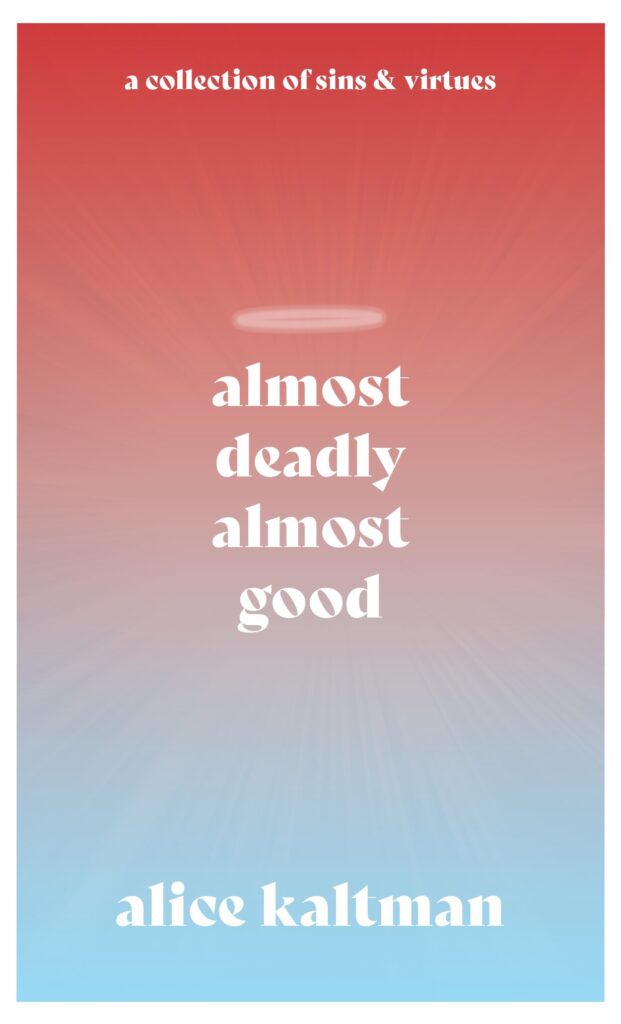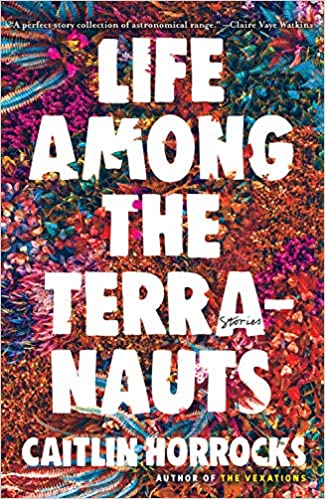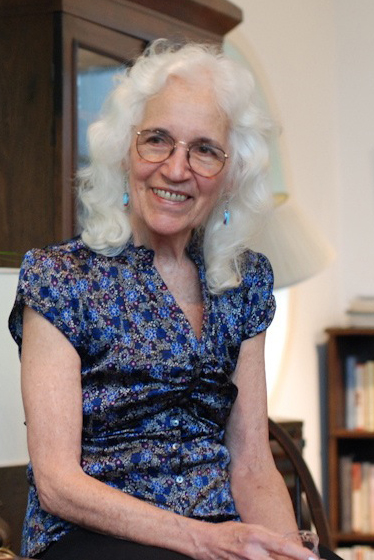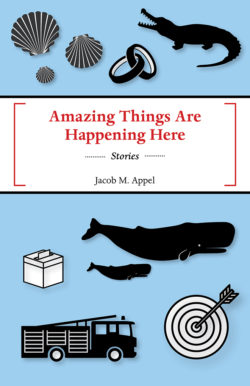Alice Kaltman’s short story collection Almost Deadly, Almost Good will be released this November, published by the Word West Press. Kaltman’s book features fourteen interlinked short stories: the first embody the seven deadly sins, the last the seven heavenly virtues. With rich, reoccurring characters and compelling plots, Kaltman creates a collection that’s impossible to put down.
Kaltman’s opening story “Sunset Lounge (Lust)” follows a woman pining after her daughter’s attractive older boyfriend. In an unexpected but riveting twist, we discover tantalizing details about the boyfriend in “A Fancy Job (Gluttony),” and the ultimate conclusion comes in “Knickers in a Twist (Charity).” Just as the stories are linked, Almost Deadly, Almost Good links good and bad, with a special attention to gender and class.
Story after brilliantly written story, we’re shown our own fears, our own foibles, our own forbidden desires, and tenderest heartaches. These are stories of human beings under pressure, at their most “changeable” moments, and we readers can’t look away. Nor do we want to. With candor, wisdom, and humor, almost deadly, almost good reminds us to be good to ourselves and to each other for we are all at once, beautiful and aching and ridiculous.
Kathy Fish, Author of Wildlife: Collected Works from 2003-2018
Alice Kaltman is the author of Staggerwing, Dawg Towne, Wavehouse, and The Tantalizing Tale of Grace Minnaugh. To learn more about Kaltman, visit her website.
To preorder Almost Deadly, Almost Good, go here.
We’re also very excited to share an interview that dives deeper into Kaltman’s collection. This interview was conducted via email by our Blog Editor, Brennie Shoup.
Brennie Shoup: Could you discuss your inspirations for Almost Deadly, Almost Good?
Alice Kaltman: The original idea for a linked collection occurred to me after I wrote the first story in the book, Sunset Lounge. It was so clearly a story about LUST that it got me thinking how fun it would be to create a chapbook based on the Seven Deadly Sins. I already had a few stories and characters that fit the bill for other Sins: Greedy Senator Levinson from Into the Woods, poor languorous Cecil from Cecil’s New Friends, envious Greta from Come On Over to My Place. Once I’d finished the other sinful stories, I fiddled with content to link them. Characters appear deeply in the plots of other stories, or sometimes they just pass by. So much fun!
BS: This collection is full of humor. Could you discuss this humor and how you balanced it with more serious themes?
AK: I’ve always felt that pathos is more tolerable if it can be softened with humor. That’s not always the case, and there are writers out there who do gut-punching stuff that I love, that make me weep. Sometimes tragedy needs to stand on its own broken, bloody legs. But in my own writing, I veer towards the humorous. It makes it feel more human and authentic to my vision of people and the crazy misguided things they do. I’ve been a psychotherapist for over 30 years. If you can’t laugh, you’ll sink. Need I say more?
BS: Despite its title and theme, most of the stories in this collection don’t appear to be explicitly religious. What made you choose the motif of the seven deadly sins and seven heavenly virtues?
AK: I can’t recall who it was, but I mentioned this project to someone along the way and they said, “Hey, why don’t you do the Heavenly Virtues also?” I had no idea what the Seven Heavenly Virtues were. I’m an agnostic Jew, who veers towards the areligious. And Jews don’t really ‘do’ sins and virtues. But I looked the Virtues up and …goldmine. I fiddled with new content and old content, pulled some sections from my novel Dawg Towne, added some new stories and revisited old ones. It was super fun to change POVs, add links that weren’t there before, change timelines, etc. Plagiarizing one’s own work is one of a writer’s deepest pleasures. Or at least one of mine.







 Today we are pleased to announce that
Today we are pleased to announce that 
